Dr. Frida Polli is an award-winning Harvard / MIT trained neuroscientist turned startup founder and CEO of Pymetrics — a startup that harnessses the power of data and AI in game form to sort people into the careers that fit them..She completed her predoctoral training in neuroscience at Harvard Medical School, and her postdoctoral fellowship in neuroscience at MIT. She came up with the idea of pymetrics once she realized how inneffective resumes, and the status quo hiring process can be in matching people to their ideal careers. The Nasdaq Entrpreneurial Center sat down with her to hear her journey so far as a game-changing entrepreneur.
What does “entrepreneurship” mean to you?
FP: To me, entrepreneurship means having the ability to change the world while also pursuing ambitious dreams.
Can you describe the a-ha moment that led to pymetrics’ conception?
FP: My a-ha moment to start pymetrics came while I was at Harvard Business School as a Life Science Fellow getting my MBA. I’d spent the decade prior as an academic neuroscientist at Harvard Medical School and MIT. I knew I wanted to transition into the private sector and despite a 30-page CV, I was unable to predict what the best path to my next role should be. I recognized the futility of relying on my resume – a document that only looked at my past and didn’t predict future success. I also saw my peers spend months preparing for and landing their dream internships, only to realize they hated the work after spending weeks on the job.
The inspiration for pymetrics came when I saw how low tech the career assessment and recruiting space was. So, I asked myself: in the age of Netflix, Spotify and Amazon, which give personalized recommendations for movies, music and products, why are there no personalized recommendations for our most important decision – our careers? Why are we not taking advantage of the recommendation engine technology that we now take for granted in the rest of our lives and apply it to filling jobs? That’s when I realized I could take the neuroscience research I had been doing in a brain imaging lab for the past decade, merge it with data science, and create a consumer-grade product experience to tackle this problem.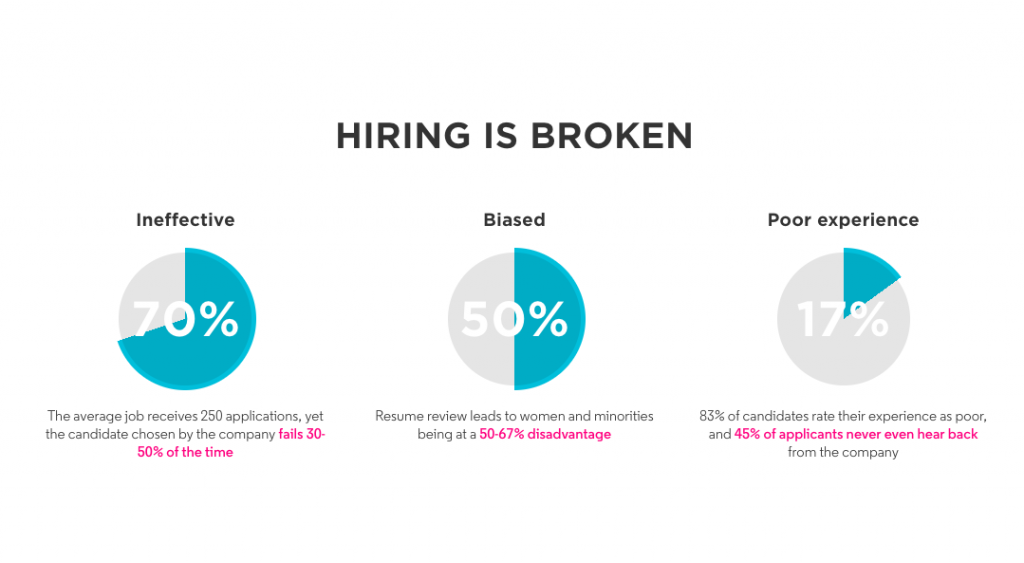
That sounds incredible — can you describe your journey as an entrepreneur so far?
FP: I don’t fit the typical tech startup CEO mold. I am female, and I am not an engineer. Also, when I started pymetrics, I was in my late thirties and a single parent.
However, I focused on what I did have. I had several advanced degrees. I had a lot of domain expertise in certain fields. I had a lot of passion for the area I was starting a company in. I generally can motivate or persuade people. So, I focused on that, and I focused on investors and clients who would value what I did have more than question what I didn’t have.
How is pymetrics changing the landscape?
FP: For decades, traditional hiring practices have led companies and candidates to make critical employment decisions using an archaic, analog process: matching a resume to a job description. This process has been a terrible predictor of success — with 30% to 50% of new hires failing within the first year — and is proven to be biased against women, minorities and people from lower socioeconomic backgrounds.
At pymetrics, we’re using neuroscience + AI to predict the right person for the job while removing bias from the process, matching candidates to jobs and companies where they are most likely to succeed based on their cognitive and emotional traits — not on their pedigree, gender, socioeconomic status or racial identity. Companies using pymetrics see massive improvements in both quality and diversity of candidates, as well as efficiency and ROI of hiring processes. pymetrics also helps companies match existing employees with new roles within their organization, reducing turnover and retaining employees whose jobs are facing obsolescence or who are simply looking for a new challenge.
What do you wish you knew when you started? Is there anything you would do differently?
FP: I wish I realized that I was about to embark on the hardest but most incredible and fulfilling job I’ve ever had.
What advice/credo do you live by as you grow the business? What is your professional and personal mission statement?
FP: Just do it! When you’re building a startup, it’s easy to want to perfect everything — but then nothing gets done. I live by the motto that done is greater than perfect.
What’s it like to work alone or with your partners? What advice do you have for fellow entrepreneurs about building and leading teams?
FP: Team culture is the most critical aspect of building a well-functioning team. As Peter Drucker said, “Culture eats strategy for breakfast!”
Where do you find inspiration when faced with challenges?
FP: I strongly believe that being a parent helped me be a better CEO because having children forces you to stop worrying about work and focus on caring for other people. It also gives you a totally different sphere in which to exist. That mental break, research has shown, can help a person problem solve much more effectively than continuing to obsess about the problem at hand. So not only is it good for your children and mental sanity, it is also good for your bottom line. I also think having a balance between work and life has been good for the team because it shows people you can create a fast-growing business without sacrificing other important aspects, like family.
What does “success” look like for you? What do you think will help you achieve it?
FP: I hope for pymetrics to create workplaces where the right people are in the right roles where they are most likely to succeed. Imagine if people loved their jobs so much they never wanted to quit, and if companies never had to fire people? Imagine if we could give people a fair shot at all opportunities, regardless of their background? If we can use the right tools to match people to the right jobs, I believe pymetrics can create that future.
What is your proudest and darkest moment so far? Share a key high and a key low from your journey if you can.
The proudest moment of my career was when one of our global clients shared the socioeconomic diversity of the candidates they hired after using pymetrics. Seeing that we could select candidates that they were more excited to hire who were also more diverse on many dimensions was an incredible moment for me.
The low moments are all of the rejections. When you’re building a truly game-changing company, you will hear 1000 no’s for every yes.
What lesson did 2017 have for you? What do you look forward to in 2018?
2017 showed me that we could have the potential to build a successful business that can have a positive impact on the world. In 2018, I hope to grow our impact and help
more people find the right roles for them where they will succeed and be happy, while also helping companies achieve greater diversity.
Many entrepreneurs continue to perfect their daily routines to support their work and greater vision; would you mind sharing your morning routine or a regular ritual that grounds your work each day?
I walk to and from work every day to clear my head and prepare or rewind from the workday.
Has being a female entrepreneur helped or discouraged you in your context? What do you think would help women entrepreneurs and leaders the most?
In hindsight, being in the single digit club of female founder and CEO – only 3% of companies have women CEOs or CTOs – has helped me get to where I am today. When I’d go to industry events or dinners, I was the only woman in the room. When you don’t see enough of these women in tech, you can doubt that you have the ability to do that. But if you don’t believe in yourself, no one else will. There’s never a good time to start a startup. There’s never a good time to have a baby. There’s never a good time for all of these life changes. You just have to feel confident that you’ll figure out a way to do it, rather than try to have everything fall into place. You just have to believe you have the resources to do it.
Additionally, you will experience bias. There are many studies now showing that investors and others are biased against women. So, when you experience it, do not second guess yourself. It’s real, it’s negative and it’s not warranted. However, also remember that being a female CEO or technologist differentiates you and makes you an outlier. In tech, being an outlier in terms of performance will differentiate you in a positive way. It’s also a badge of honor that you’ve made it despite having a lot more obstacles to face – so embrace it.
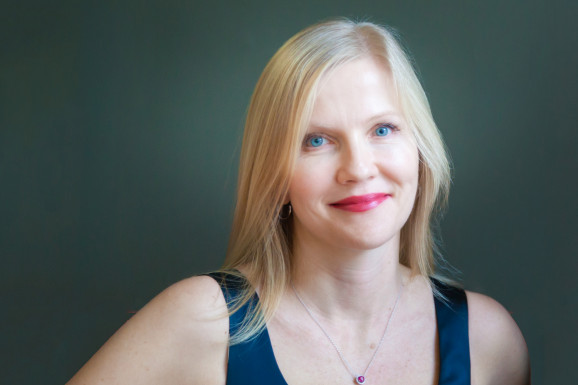
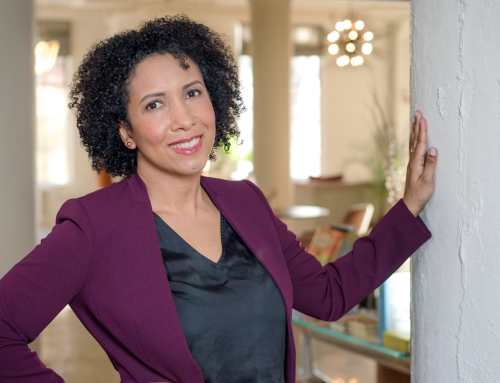
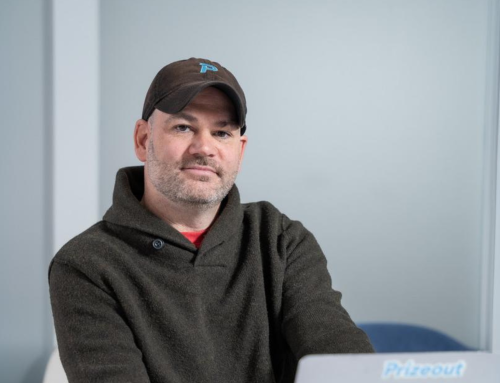
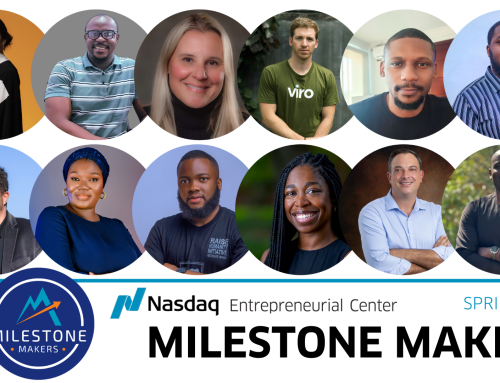
Invite a Friend
Close